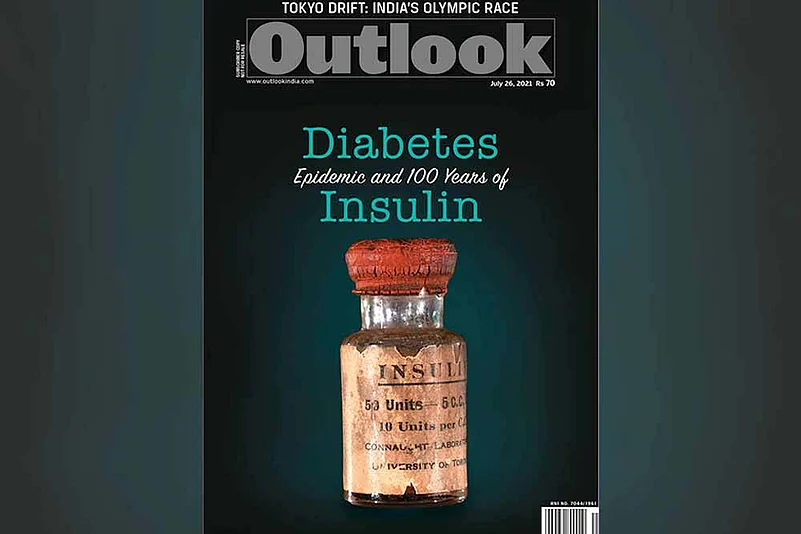Dr Shriram Nene, healthcare innovator and cardiovascular surgeon, has always been vocal about diabetes being an epidemic in India. He tells Lachmi Deb Roy how the disease can be handled with lifestyle changes.
How has diabetes become like an epidemic in India?
The increase in diabetes in India and worldwide appears to mirror the move from an agrarian to industrialised society and diets that are high calorie and high glycemic index. It correlates with other risk factors, including obesity, inactivity, and fat distribution.
How can we prevent it?
In Type II diabetes, we can view it as a combination of genes and lifestyle. While there is a strong familial component, we can potentially prevent or even reverse diabetes by modifying our lifestyles and thereby avoid the full expression of the genes. Some of this has to do with modifying our lifestyles, eating healthy, dropping weight, and exercising as these are independent variables in treating diabetes. Additionally, recognising the symptoms, risk factors and family history early will potentially improve outcomes by getting the patient to treatment earlier in the disease process.
What are the steps we need to take to prevent it?
Changing your lifestyle could be a big step toward diabetes prevention. Prevention is important if you’re at an increased risk of Type II diabetes because of excess weight or obesity, high blood cholesterol levels, or a family history of diabetes. One must reduce their excess weight as well as regularly exercise. Exercise can help you lower blood sugar and boost your sensitivity to insulin—which helps keep your blood sugar within a normal range. One must include a healthy diet plan. Plant foods provide vitamins, minerals and carbohydrates. Carbohydrates include sugars and starches—the energy sources for your body—and fibre. Dietary fibre is the part of plant food your body can’t digest or absorb. Unsaturated fats—both monounsaturated and poly-unsaturated—promote healthy blood cholesterol levels and good heart and vascular health.
Making a few changes in your lifestyle may help you avoid the serious health complications of diabetes in the future, such as nerve, kidney and heart damage.
If we have diabetes, what lifestyle changes do we need to make?
The first and foremost is eating healthy. Sugar is public enemy number one. For people taking mealtime insulin, it’s important to calibrate it to your blood sugar and what you are eating, so you get the proper insulin dose. Pay attention to the types of carbohydrates you choose: complex are better. Completely avoid sugar and sweetened beverages. Exercise also plays a crucial role in controlling diabetes. Even light activities—such as housework, gardening or being on your feet for extended periods—can improve your blood sugar. Stress plays a key role in the increase of blood sugar levels. So, managing the flight or fight, stress response may be beneficial to your overall well being. One must also cut down on alcohol. Alcohol has tremendous carbohydrate calories.

Diabetes among kids.
Diabetes rates in childhood and adolescence are rising. Type 1 diabetes is much more common among young people. In most cases, people can manage the symptoms of both types with a healthy diet, regular exercise, and medications. Children are particularly challenging as they are still growing and will need family support and close observation.
Diabetics are at greater risk of other diseases.
Long-term complications of diabetes develop gradually and may become disabling or even life-threatening. Diabetes dramatically increases the risk of cardiovascular problems, including coronary artery disease with chest pain (angina), heart attack, stroke, and narrowing of arteries (atherosclerosis). Excess sugar can injure the peripheral nerves, especially in your legs. Left untreated, you could lose sensation in the affected limbs. The loss of sensation can lead to undetected ulcers. Further, damage to nerves related to digestion can cause problems with stomach motility, termed as diabetic gastroparesis. In men, it may lead to erectile dysfunction. Diabetes can damage small blood vessels of the retina (diabetic retinopathy), and result in flare haemorrhages, which can lead to blindness. Diabetes also increases the risk of cataracts and glaucoma. Kidney damage, due to diabetic small vessel disease, can lead to kidney failure needing dialysis.
What is clear is that diabetes is a bad actor. But if we recognise the risk factors, symptoms and make the diagnosis early, and treat aggressively with a combination of therapies and lifestyle modifications, the outcomes can be improved significantly.






















